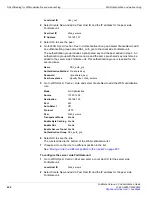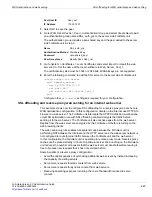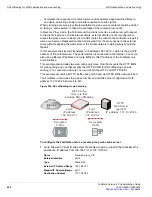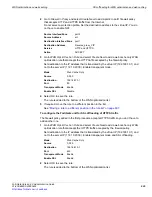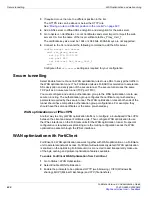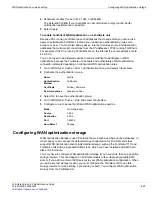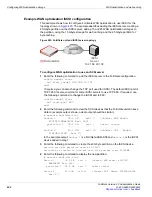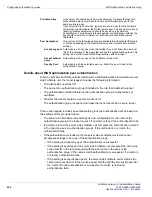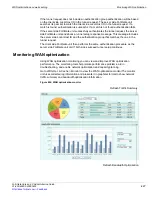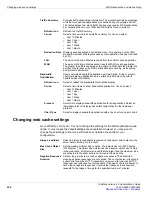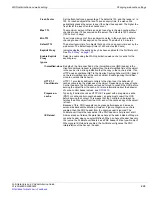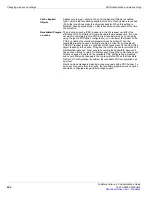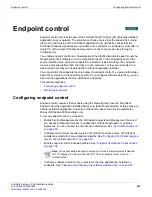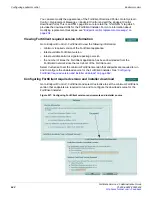
WAN optimization and web caching
Changing web cache settings
FortiGate Version 4.0 Administration Guide
01-400-89802-20090424
639
Fresh Factor
Set the fresh factor as a percentage. The default is 100, and the range is 1 to
100. For cached objects that don’t have an expiry time, the web cache
periodically checks the server to see if the object has expired. The higher the
fresh factor the less often the checks occur.
Max TTL
The maximum amount of time an object can stay in the web cache without
checking to see if it has expired on the server. The default is 7200 minutes
(120 hours or 5 days).
Min TTL
The minimum amount of time an object can stay in the web cache before
checking to see if it has expired on the server. The default is 5 minutes.
Default TTL
The default expiry time for objects that do not have an expiry time set by the
web server. The default expiry time is 1440 minutes (24 hours).
Explicit Proxy
Indicates whether the explicit proxy has been enabled for the FortiGate unit.
See
Enable Explicit
Proxy
Select to enable using the WAN optimization web cache to cache for the
explicit proxy.
Ignore
If-modified-since
Be default, the time specified by the if-modified-since (IMS) header in the
client's conditional request is greater than the last modified time of the object
in the cache, it is a strong indication that the copy in the cache is stale. If so,
HTTP does a conditional GET to the Overlay Caching Scheme (OCS), based
on the last modified time of the cached object. Enable ignoring
If-modified-
since
to override this behavior.
HTTP 1.1
Conditionals
HTTP 1.1 provides additional controls to the client over the behavior of
caches concerning the staleness of the object. Depending on various Cache-
Control headers, the FortiGate unit can be forced to consult the OCS before
serving the object from the cache. For more information about the behavior
of cache-control header values, see
.
Pragma-no-
cache
Typically, if a client sends an HTTP GET request with a pragma no-cache
(PNC) or cache-control nocache header, a cache must consult the OCS
before serving the content. This means that the FortiGate unit always re-
fetches the entire object from the OCS, even if the cached copy of the object
is fresh.
Because of this, PNC requests can degrade performance and increase
server-side bandwidth utilization. However, if ignore
Pragma-no-cache
is
enabled, then the PNC header from the client request is ignored. The
FortiGate unit treats the request as if the PNC header is not present at all.
IE Reload
Some versions of Internet Explorer issue Accept / header instead of Pragma
nocache header when you select Refresh. When an Accept header has only
the / value, the FortiGate unit treats it as a PNC header if it is a type-N object.
When ignore
IE Reload
is enabled, the FortiGate unit ignores the PNC
interpretation of the Accept: / header.
Содержание Gate 60D
Страница 678: ...Reports Log Report FortiGate Version 4 0 Administration Guide 678 01 400 89802 20090424 http docs fortinet com Feedback...
Страница 704: ...Index FortiGate Version 4 0 Administration Guide 704 01 400 89802 20090424 http docs fortinet com Feedback...
Страница 705: ...www fortinet com...
Страница 706: ...www fortinet com...


